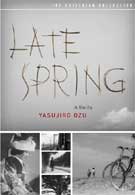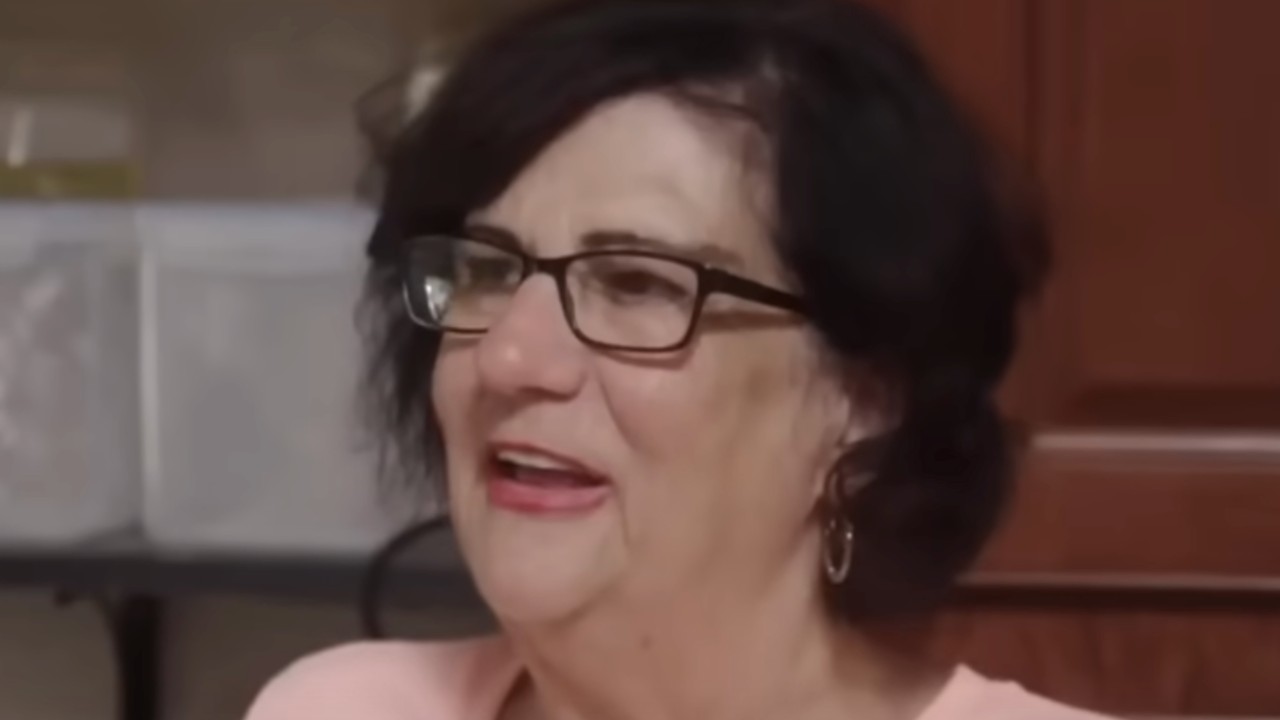A widowed father feels that he must marry off his 27 year-old daughter, despite that neither of them wants their lives to change in Yasurjiro Ozu’s bittersweet Late Spring. Ozu captures a universal experience of family relationships while lamenting the decline of Japanese culture. The Criterion Collection presents this film in a magnificent two-disc DVD set just in time for early summer. There are a few universal experiences that we all share. Perhaps the most profound is the experience of family. Whether you have a tightly-knit family tree or distant relatives, relationships within a family prove to be the most complex of all our relations. There are obligations both in the family and society that we as children and parents are supposed to follow. Japanese director Yasujiro Ozu spent his 35-year directorial career exploring family relationships and obligations through stories that highlight the separation between old customs and new ideas that leads to the disillusion of a family unit.
Late Spring is the story of a widowed father who feels that he must finally marry off his 27-year-old daughter, Noriko. Neither want their lives to change, but Noriko must make a life for herself and her father must convince her that it is for the best. While nearly all Ozu’s films center on a family dilemma and some even share a similar story line (specifically Early Summer and End of Summer), every Ozu film is fresh and unique in the way the themes develop. Late Spring is the most thematically vocal of all of Ozu’s films available on DVD, as it shows Ozu’s angry reaction to a post-war Japan.
Filmed just four years after the atomic bomb was dropped on Hiroshima and Nagasaki, Late Spring is a portrait of a country that was forced to change and evolve, as much as it is a story of a daughter who is forced to marry. We watch Noriko ride her bike past an advertisement for Coca-Cola. We see her pestering her cousin who is not allowed to play baseball with the other children. And, we see her infatuation with Gary Cooper through talk of her arranged husband resembling the famed actor. Western influences have invaded Japan, just as the idea of marriage has invaded the father and daughter’s relationship. The force of such changes brews feelings of anger and resentment in both Noriko and Ozu.
Yet, Noriko, angry about the forced change within her family, and Ozu, angry about the forced change within Japanese culture, both come to understand that the progression is irreversible. We hear clocks chiming to remind us of time’s constant motion and see the dichotomy between Noriko riding her bike to the ocean and her riding the train into Tokyo. Time moves forward, never looking back, and Noriko and her father accept that with a bittersweet sentiment that they must both continue their pursuit of happiness down different paths.
In his own way, Ozu was a radical director. He resisted any new technological advancements within the film industry, first the development of sound, then cinescope (or tohoscope), which he never utilized, and he held out aginst shooting in color for as long as possible. Ozu defied filmmaking conventions by sticking to a strict set of self-imposed rules. His camera angles are low and commonly framed within a natural frame created by the set or location (e.g. a door way or between two trees). This technique creates a distance between the characters and the viewer; the viewer is never involved in the story, but free to observe from a distance.
Ozu also uses a series of ellipses in his editing, meaning that he skips over scenes that your typical Hollywood film would melodramatically emphasize, in favor of moving the story forward and creating a true tragedy. For example, Noriko and her father discuss her meeting the man her aunt has selected for her. From that scene, Ozu cuts to the father and the aunt walking through town discussing Noriko’s decision whether or not to marry and, in effect, completely skipping over the scene where Noriko meets the man. At first, this seems counter-intuitive, but it works in a much more dramatic way than actually seeing the event. We know that Noriko is going to meet the man and that she will have to decide if she wants to marry him, so Ozu saves us the time and trouble of seeing them meet because it is unimportant. This film is not about Noriko and her arranged husband (who we never actually see), it is about the evolution of the parent and child roles as people grow and the inner conflict of letting go.
For many years, it was thought that Ozu’s films were much too “Japanese” to be accepted in the U.S. Although the Japanese culture and heritage runs strong through Ozu’s work, his films transcend culture and even time in his pursuit of understanding the relationships within a family. He explores roles that anyone can relate to; the role of a father, mother, son or daughter, which we all experience and connect with on some level. As with any Criterion Collection release, you can expect the best of the best, and the Late Spring 2-disc release is no exception. On disc one, you have the film presentation and audio commentary by Richard Pena, program director for New York Film Society of Lincoln Center. Unfortunately, the film has seen better days, both visually and sonically. As Criterion explains, the film is presented in it’s original 1.33 :1 aspect ratio and sports a new high-definition digital transfer from a 35mm fine-grain master positive and a 35mm theatrical print. While Criterion went to great lengths to preserve and present the best possible image, Late Spring is a film that is over 50 years old. There are scratches on the film that are visible on the left side of the frame every 90 frames or so for about 20 minutes and, at times, there is a line that runs down the center of the image. However, the majority of the time, the black and white contrast is excellent and the image is always sharp. Despite the transfer’s short comings, odds are that the film has never looked this good and will never look any better.
The audio suffers from similar deterioration. Presented in Dolby Digital Mono and mastered at 24 bits from the film’s optical track, there is the occasional pop, crackle and hiss, but the major gripe is the inconsistency of the soundtrack’s volume. At times, the loudness differs between scenes, so don’t let the receiver remote stray too far. Given that the film is in Japanese, the optional, newly-translated English subtitles are strongly recommended. Richard Pena does an admiral job with the commentary providing insight into both Ozu’s work and the transformation of Japan. The commentary is engaging throughout and enriches the appreciation for the film. Highly recommended.
On disc two, Criterion presents Tokyo-Ga, a documentary by famed director Wim Wenders (Paris, Texas). A feature film in its own right (with a run time of 92 minutes), Tokyo-Ga connects with Ozu through its themes and interviews with the people who worked with Ozu. Wenders visited Japan in 1983 in search of the Tokyo he knew from Ozu’s films. He found glimpses of Ozu’s characters in the children and the elderly, but the western culture that Ozu resisted had seeped deeper into Japanese culture since Ozu’s death in 1963. Perhaps the essence of the documentary can be found in the scene when Wenders watches a John Wayne movie on his hotel room TV late one night in Tokyo. Much like Ozu’s own work, Tokyo-Ga sadly accepts the current state of Japanese culture and laments what was lost.
Although the commentary and Wenders’ documentary are excellent, it would have been nice to seen a theatrical trailer and a bit more of Ozu’s presence in the bonus material. However, also included is a 20-page booklet with new, insightful essays by Michael Atkinson and Donald Richie that are well worth your time. Plus, there are comments from Ozu about his collaboration with screen writer Kogo Noda. Late Spring is packaged in a double-wide DVD case and is one of those classic Criterion packages that, when you hold it in your hands, even if you haven’t seen the film, you get the feeling that this is a special film that you must own.
Joe Hendry Reveals How The WWE Snuck Him Into WrestleMania 41 For Randy Orton Match, And Confirms How Seriously They Take Surprise Appearances
Greg's Mom Seemed Like Another Nightmare 90 Day Fiancê Mother-In-Law, But She Changed My Mind
The Last Of Us Season 2 Episode 3 Live Blog: I'm Talking The Aftermath Of Joel's Tragedy, Ellie's Recovery And More











